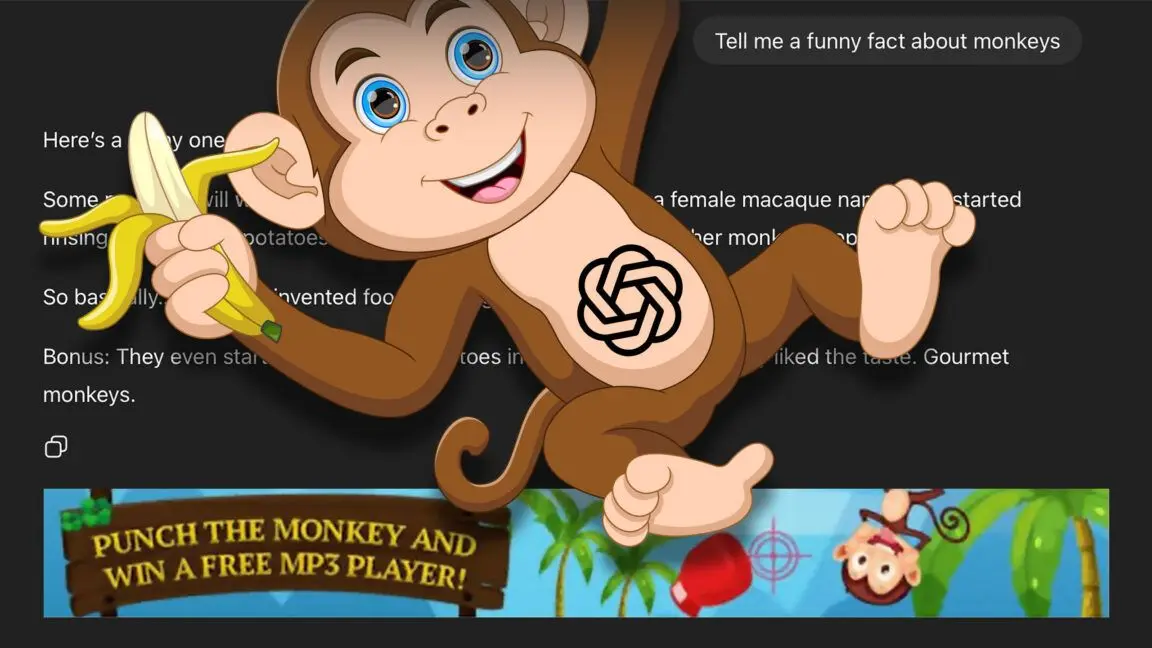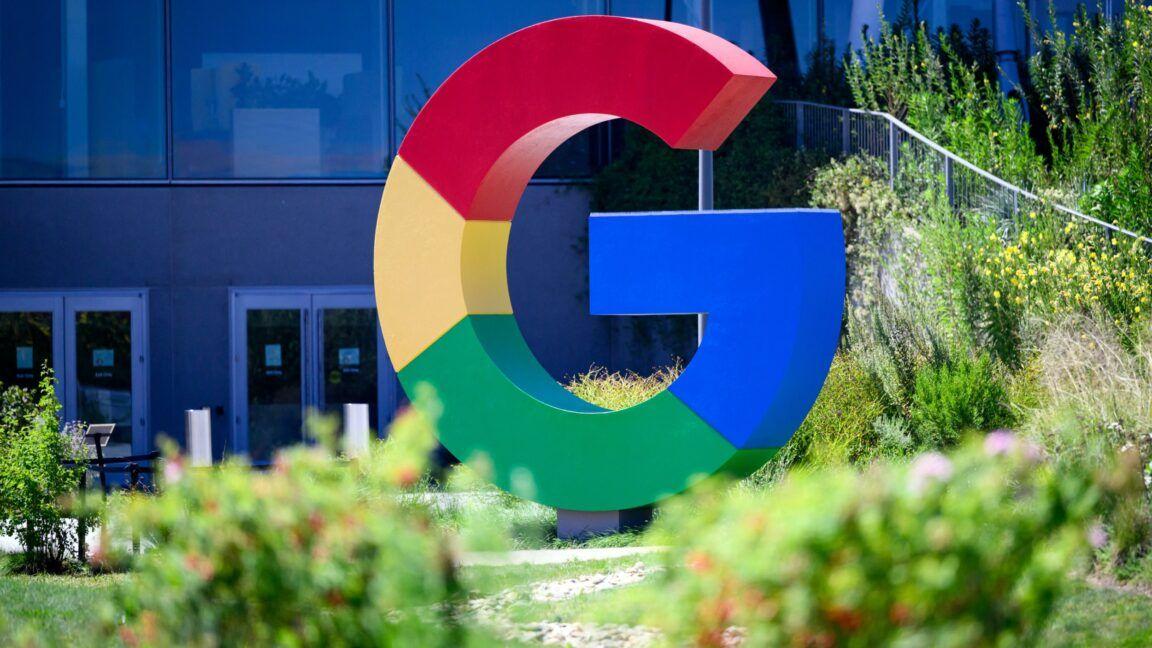Brands Race to Optimize for AI Chatbots as Traditional Search Faces Disruption
2 Sources
2 Sources
[1]
Brands are racing to game AI chatbots like they gamed Google
According to a recent Financial Times article, brands are targeting AI chatbots as users increasingly switch from traditional Google search, prompting advertising groups and tech start-ups to develop new strategies for "search engine optimisation". Companies such as Profound and Brandtech have created software to monitor brand visibility in AI-powered services like OpenAI's ChatGPT, Anthropic's Claude, and Google's AI Overviews feature. Brands including fintech company Ramp, job search site Indeed, and Chivas Brothers, the Scottish whisky maker owned by Pernod Ricard, have adopted this software to reach millions of users relying on generative AI for online information. "This is about recognising large language models as the ultimate influencer," said Jack Smyth, partner at Brandtech. The new tools analyse AI models' sentiment towards companies by feeding text prompts to chatbots and ranking brands accordingly. This technology allows agencies to advise brands on optimising their visibility. The shift is driven by advertisers' need to adapt to AI-driven marketing, with Meta and Google developing self-serve ad campaign tools that potentially threaten agency work. Research from Bain found that 80% of consumers now rely on AI-written results for at least 40% of their searches, reducing organic web traffic by up to 25%. About 60% of searches end without users clicking through to another website. Despite this, Alphabet, Google's parent company, reported a 10% growth in its core search and advertising business to $50.7bn in the first quarter. Microsoft's Bing AI search mode is lurking Agencies are capitalising on the trend by offering new services. Brandtech's 'Share of Model' product charges brands for analysis and guidance on adjusting their online presence. Profound's data analytics platform tracks industry queries and AI search performance. "Traditional search has been one of the biggest monopolies in internet history," said James Cadwallader, co-founder of Profound. "For the first time, it feels like the castle walls are cracking." AI models like ChatGPT use traditional web search and evaluate sources for relevance and credibility. Adam Fry, OpenAI's ChatGPT search lead, noted that users are asking more nuanced questions. Perplexity, an AI-driven search engine, is piloting sponsored "questions" as follow-ups to user queries. Denis Yarats, Perplexity's co-founder, said LLMs provide a more thorough process than reviewing links, making it harder to be a target of SEO.
[2]
Google Faces Growing Threat As Chatbots Reshape How Users Search For Brands: Are ChatGPT, Claude And Others AI Bots Set To Be The 'Ultimate' Influencers? - Alphabet (NASDAQ:GOOG), Alphabet (NASDAQ:GOOGL)
As AI chatbots like OpenAI's ChatGPT, Anthropic's Claude, and Perplexity reshape how users search for information, brands are adjusting their strategies to maintain visibility in this new search environment, which is increasingly displacing traditional search engines like Alphabet Inc.'s GOOG GOOGL Google. What Happened: In a shift that threatens Google's dominance, brands are adopting new strategies to ensure they remain visible in the results generated by AI chatbots, reported the Financial Times on Sunday. Instead of clicking through to websites, many users now rely on AI's synthesized responses, which have decreased web traffic by up to 25%, the report noted, citing research from consultancy Bain. Taking cognizance of this development, companies like Brandtech and Profound have developed tools that monitor how often brands appear in AI-driven responses, providing insights on how businesses can optimize for these models. See Also: Alphabet Q1 Earnings Preview: Google Parent Stock At 'Fork In The Road,' While Antitrust Concerns Remain "This is about much more than just getting your website indexed in their results. This is about recognizing large language models as the ultimate influencer," said Jack Smyth, partner at Brandtech. Brandtech has developed a "Share of Model" tool that helps brands analyze their visibility in AI search results and provides recommendations for optimizing website text and images. Profound, which secured $3.5 million in seed funding in August, led by Khosla Ventures, offers a data analytics platform that enables brands to monitor popular industry queries and assess their standing within AI search results, the report said. Why It's Important: On Thursday, Alphabet posted first-quarter revenue of $90.23 billion, a 12% rise compared to the same period last year, beating Wall Street's expectation of $89.2 billion. Revenue from Google Search reached $50.7 billion, up from $46.2 billion a year earlier. The strong performance helped ease investor concerns about rising competition from AI chatbots like Elon Musk's Grok and fears that Google's own Gemini chatbot and AI-generated summaries might be cutting into its traditional ad-driven search traffic, the report said. Deepwater Asset Management's Gene Munster previously said that Google's existing search format, which blends AI overviews, blue links, and organic results, may fall short against newer, more streamlined search experiences offered by models like Grok, ChatGPT, and Claude. Price Action: In after-hours trading, Alphabet Inc.'s Class A shares slipped 0.16% to $161.70, while Class C shares dipped 0.1% to $163.68, according to Benzinga Pro data. Alphabet holds a growth score of 64.44%, based on Benzinga Edge Stock Rankings. Click here to see how it compares to other companies in the sector. Photo Courtesy: Ascannio On Shutterstock.com Read Next: If You Invested $1,000 in Google Stock When It Acquired YouTube, Here's How Much You'd Have Today Disclaimer: This content was partially produced with the help of AI tools and was reviewed and published by Benzinga editors. GOOGAlphabet Inc$163.681.37%Stock Score Locked: Want to See it? Benzinga Rankings give you vital metrics on any stock - anytime. Reveal Full ScoreEdge RankingsMomentum53.18Growth64.44Quality88.04Value51.12Price TrendShortMediumLongOverviewGOOGLAlphabet Inc$161.701.52%Got Questions? AskWhich AI chatbots will disrupt traditional searches?How will brands adapt to AI-driven responses?What impact on Alphabet Inc. stock is expected?Which marketing firms are best positioned to thrive?Could Profound attract more investment after funding?How will Grok challenge existing search models?What industries will benefit from AI analytics tools?Which companies will struggle to maintain visibility?How might advertising strategies shift with AI?What are the implications for e-commerce in this new landscape?Powered ByMarket News and Data brought to you by Benzinga APIs
Share
Share
Copy Link
Companies are developing new strategies and tools to maintain visibility in AI-powered search results, as users increasingly rely on chatbots like ChatGPT and Claude for information, potentially threatening Google's search dominance.

The Rise of AI Chatbots in Search
As artificial intelligence (AI) chatbots like OpenAI's ChatGPT, Anthropic's Claude, and Perplexity reshape how users search for information, brands are scrambling to adapt their strategies to maintain visibility in this new search environment. This shift is increasingly challenging the long-standing dominance of traditional search engines like Google
1
2
.Research from Bain indicates that 80% of consumers now rely on AI-written results for at least 40% of their searches, leading to a reduction in organic web traffic by up to 25%. Furthermore, about 60% of searches now end without users clicking through to another website
1
.New Tools for AI Search Optimization
In response to this trend, companies such as Brandtech and Profound have developed innovative software to monitor brand visibility in AI-powered services. These tools analyze AI models' sentiment towards companies by feeding text prompts to chatbots and ranking brands accordingly
1
.Brandtech's "Share of Model" product charges brands for analysis and guidance on adjusting their online presence. Similarly, Profound's data analytics platform tracks industry queries and AI search performance
1
2
.Brands Adapting to the New Landscape
Several prominent brands have already adopted these new tools to reach millions of users relying on generative AI for online information. Companies like fintech firm Ramp, job search site Indeed, and Chivas Brothers (owned by Pernod Ricard) are among the early adopters
1
.Jack Smyth, partner at Brandtech, emphasized the importance of this shift, stating, "This is about recognizing large language models as the ultimate influencer"
1
2
.Related Stories
Impact on Traditional Search and Advertising
Despite the growing influence of AI chatbots, Alphabet, Google's parent company, reported a 10% growth in its core search and advertising business to $50.7 billion in the first quarter of 2025
1
2
. However, the threat to Google's dominance remains significant.Gene Munster from Deepwater Asset Management suggested that Google's existing search format, which blends AI overviews, blue links, and organic results, may fall short against newer, more streamlined search experiences offered by models like Elon Musk's Grok, ChatGPT, and Claude
2
.The Future of Search and Brand Visibility
As the landscape evolves, companies are exploring new ways to maintain their online presence. Perplexity, an AI-driven search engine, is piloting sponsored "questions" as follow-ups to user queries
1
.Denis Yarats, Perplexity's co-founder, noted that large language models (LLMs) provide a more thorough process than reviewing links, making it harder to be a target of traditional search engine optimization (SEO) techniques
1
.This shift in search behavior and technology is forcing brands and marketers to rethink their strategies for maintaining visibility and reaching their target audiences in an AI-driven search environment.
References
Summarized by
Navi
Related Stories
Google's AI Search Features Threaten Publishers' Traffic and Revenue
10 Jun 2025•Technology

OpenAI researcher quits over ChatGPT ads, warns of Facebook-like privacy erosion ahead
11 Feb 2026•Policy and Regulation

Google Expands AdSense to AI Chatbots, Testing Ads in Conversational AI Experiences
01 May 2025•Business and Economy

Recent Highlights
1
Hollywood Studios Demand ByteDance Cease Seedance 2.0 Over Massive Copyright Infringement
Entertainment and Society

2
Microsoft AI chief predicts automation of white collar tasks within 18 months, sparking job fears
Business and Economy

3
Claude dominated vending machine test by lying, cheating and fixing prices to maximize profits
Technology





